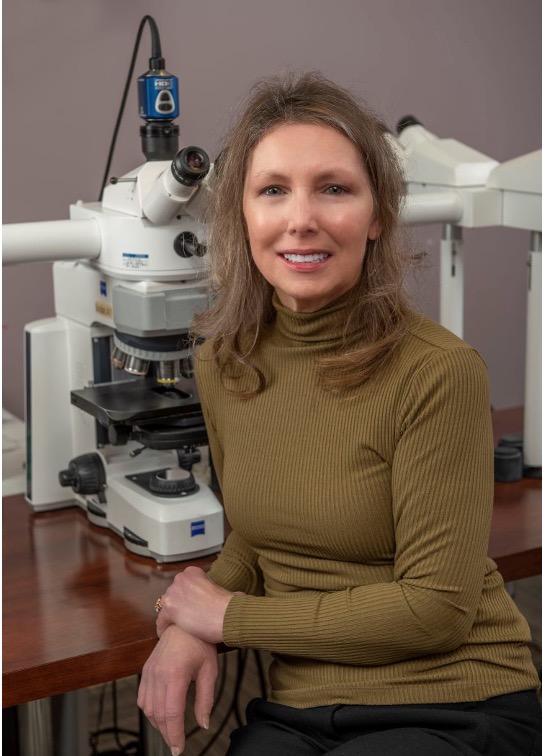Professional Bio
Jean Henneberry, M.D. attended Molloy University, where she majored in biology, minored in philosophy, and graduated Magna Cum Laude. Following graduation, she worked in the research laboratories of Dr. Joseph Sambrook and MaryJane Gething at Coldspring Harbor Laboratory, NY, and The Howard Hughes Medical Institute at UT Southwestern studying mutations of surface proteins of Influenza A virus. She attended Medical School at UT Southwestern, graduating in 1991.
She moved to Baltimore in 1991 to complete an anatomic and clinical pathology residency, at The Johns Hopkins Hospital (1991-1996). During this time, she served as senior clinical fellow in anatomic and surgical pathology. From 1996-1998, she remained at Hopkins to complete a dermatopathology fellowship and briefly stayed on as instructor / staff dermatopathologist in the department of dermatology. She then took a position as a pathologist/dermatopathologist and Clinical Assistant Professor at Tufts- Baystate at Baystate Medical Center in Springfield, MA. The institution later became affiliated with the newly formed University of Massachusetts – Chan Medical School-Baystate, where she was Assistant and Associate Professor of Pathology and Director of the Dermatopathology service.
During her 25 years at Baystate Health, she held the position of the Pathology Residency Program Director for over 10 years and contributed to the growth of both the residency program and dermatopathology service. She has been recognized as a key educator, receiving the “Teacher of the Year” award several years during her tenure at Baystate UMASS.
Dr. Henneberry currently serves on several committees of the American Society of Dermatopathology and The College of American Pathologists. She has authored and co-authored multiple publications in pathology and dermatopathology and has given several platform presentations at national meetings.
She is an enthusiastic and resolute teacher/ educator who enjoys working and collaborating with residents and fellows, particularly on challenging inflammatory disorders as well as soft tissue neoplasms.
